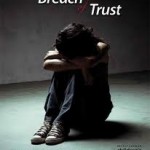Law Gone Wrong: Adoption in the Context of Same-Sex Relationships
Today’s post is the first in an occasional series entitled “Law Gone Wrong.” The editors of the Faculty Blog invited Law School faculty to share their thoughts on misguided statutes, disastrous judicial decisions, and other examples where the law has gone wrong (and needs to be nudged back on course). First up is Professor David Papke.
As currently written, WIS. STAT. 48.92 – Effect of Adoption is a bad statute with unintended results. The statute says that, with the exception of stepparent adoptions, an adoption ends all legal relationships between the adopted child and that child’s biological parents. Put in blunter words, the rights of all biological parents are terminated when an adoption is finalized. This statute no doubt grows out a determination to normalize the lives of adopted children. They are to have only one set of parents and to know just who those parents are. On a deeper level, the statute reflects the possessive imperatives so central in the dominant American world view and extends it to adoptive children.
The great problem with the statute involves same-sex couples with children.

